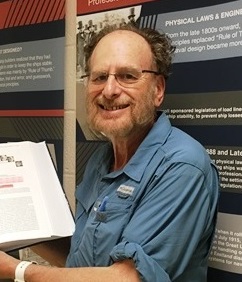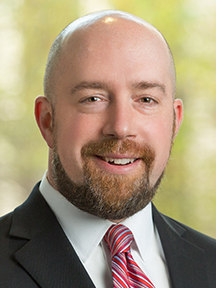Faculty from the Wayne State University School of Medicine and Wayne State University Law School have teamed to publish a paper this month on legal and ethical issues associated with community detection of COVID-19 through wastewater monitoring.

Professor of Physiology Jeffrey Ram, Ph.D., and Associate Professor of Law Lance Gable, Ph.D., along with Dr. Ram’s daughter, University of Maryland Professor of Law Natalie Ram, co-wrote Legal and Ethical Implications of Wastewater SARS-CoV-2 Monitoring for COVID-19 Surveillance, now available in the Journal for Law and Biosciences.
The paper, already a popular download, is listed on the Social Science Research Network’s Top Ten download list in several categories.

Dr. Ram also is director of the Wayne State University Belle Isle Aquarium Field Research Laboratory.
Scientists have observed that molecular markers for COVID-19 can be detected in wastewater during an outbreak and, in some cases, before the first case is confirmed, they wrote. The U.S. Centers for Disease Control and Prevention, and other government entities, are considering whether to add community surveillance through wastewater monitoring to assist in tracking disease prevalence and guiding public health responses to the pandemic.
“This scientific breakthrough may lead to many useful potential applications for tracking disease, intensifying testing, initiating social distancing or quarantines, and even lifting restrictions once a cessation of infection is detected and confirmed. Yet, new technologies developed in response to a public health crisis may raise difficult legal and ethical questions about how such technologies may impact both the public health and civil liberties of the population,” the authors wrote. “Even if reliability and efficacy are established, limits on sample and data collection, use and sharing, must also be considered to prevent undermining privacy and autonomy in order to implement these public health strategies consistent with legal and ethical considerations.”
The article describes recent scientific evidence regarding COVID-19 detection in wastewater, identifying public health benefits that may result from this breakthrough, and limitations of existing data. It also assesses the legal and ethical implications of implementing policy based on positive sewage signals.
“The topic of wastewater epidemiology of COVID-19 is a very new and extremely active one,” Dr. Ram said. “We (at Wayne State) have assembled a team that includes microbiologists, an epidemiologist, a law professor, medical students, collaborators outside of Wayne State and more. We have support from Healthy Urban Waters.”
Healthy Urban Waters is a collaboration of WSU researchers networked with the community to focus on water in an urban setting and future impacts of human culture on community, the ecosystem and economic health.
Dr. Ram and Dr. Gable were invited to present at a new community interaction forum organized with COVID-313 by the WSU Office of the Provost’s Social and Behavioral Determinants of Health Steering Committee. They plan additional projects together.
Natalie Ram writes about the legal and ethical uses surrounding various biotechnologies, including the use of DNA by the police. Her decision to pursue the philosophical side of science, including ethics and law, was partly inspired by her Wayne State connections. She was part of a summer science program for girls organized by Wayne State Professor Alvin Saperstein at Wayne State, and while a college student at Princeton she conducted molecular research one summer on pre-implantation genetic diagnosis at WSU’s Center for Molecular Medicine and Genetics.